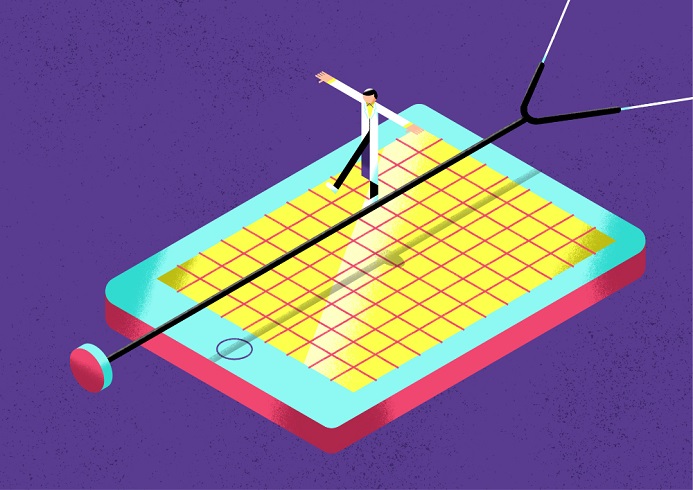The COVID-19 pandemic has revealed the strengths and weaknesses of today’s healthcare systems. With the knowledge that human resources, time, accuracy and coordination are essential for effective care, how can we improve standards of care in cardiology?
New tools to fix what is not working
The COVID-19 crisis has highlighted shortages of healthcare workers, bottlenecks in data exchange, and the burden of administrative duties that quietly steal precious time away from clinicians. As a result, the coronavirus has also accelerated mental problems and burnout among doctors and nurses, although the adverse effects of these issues will not manifest themselves for some time yet. While healthcare systems address the highest priority challenges caused by the pandemic, it has become clear to all politicians, hospital managers, and health workers that we cannot afford to return to the “old normal.”
The Chinese word “crisis” is made up of two characters: danger and chance/opportunity. One of the opportunities that we can seize upon regarding the COVID-19 outbreak is to take a closer look at the processes that unnecessarily consume clinicians’ time. Paperwork, repetitive duties, and data analytics are only a few areas with immense potential for improvements aimed at supporting doctors. Making time for clinical tasks and communication with patients sometimes requires only small, smart changes, such as applying technologies which address specific workflow-related problems. When combined with process redesign, surprising improvements in healthcare organisations can be achieved.
A cardiologist with a digital assistant
Cardiology also harnesses digital health technologies to improve patient outcomes, diagnose cardiovascular diseases at an early stage and eliminate bottlenecks in both dataflow and workflow. Artificial Intelligence, telecare, Big Data, mobile devices and applications, and remote monitoring have proven their value during the COVID-19 pandemic. Worldwide, clinics are starting to use them to introduce new cardiovascular disease prevention standards, coordinate care, and boost communication with patients. If appropriately implemented, administrative tasks get automated while doctors can augment their competencies.
For example, algorithms perform well where large data sets must be analysed, such as with ECG signals. AI-based software, like that developed by Cardiomatics, has achieved impressive precision demonstrated over several studies. Moreover, algorithms are always improving because they can continuously learn. Cardiologists who have already adopted such tools in their workplaces quickly forget their concerns regarding accuracy or that they could take over some tasks. It’s about people cooperating with AI systems for quicker and better decision-making and patient safety, standardised diagnostics methods, and minimising errors. Algorithms can suggest that cardiologists have a closer look at some part of the ECG or double-check abnormalities detected in long-term heart rhythm monitoring. But let’s be honest: humans will always make the final diagnosis that determines a patient’s life and health, but with one significant difference – an additional pair of AI eyes will increase the quality of the diagnosis.
Slight changes for a significant mind-shift
Certified, clinically tested, and reliable AI solutions are still relatively new on the market, so their adoption needs a dose of courage and trust instead of the expectation of more evidence. This is how digital leaders think. Organisations with high digital maturity know that implementing digital health solutions is not only about technology, but also changing processes.
No matter how challenging it sounds to use AI systems, clinicians should start with a small, manageable step. The cloud-based ECG analysis platform offered by Cardiomatics doesn’t require a big organizational effort, and you will be surprised how smooth it is to adopt. And most of all, ask yourself what you would like to achieve with algorithms. Do you want to gain more time for activities that you didn’t have time for before? Or maybe you just want to challenge yourself and check what AI can offer. Or you feel there is room for improvement in time management or quality of care.
One of the conclusions coming from the COVID-19 crisis is that healthcare needs to be redesigned in order to meet the challenges that will return after the pandemic. AI-based solutions can help if we start trusting them. Algorithms have a chance to make the doctor’s work safer in terms of accuracy or by reducing the burden of repetitive tasks. Every change begins with a change of perspective.

